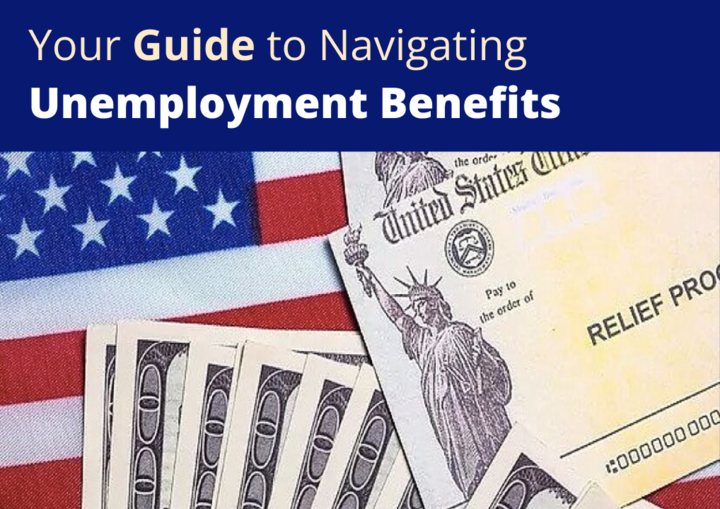A credit score is a numerical representation of an individual’s creditworthiness, typically ranging from 300 to 850. This score is derived from various factors, including payment history, credit utilization, length of credit history, types of credit in use, and recent credit inquiries. Understanding the components that contribute to your credit score is crucial for managing your financial health.
For instance, payment history accounts for approximately 35% of your score, making it the most significant factor. This means that consistently making payments on time can have a substantial positive impact on your overall score. Moreover, credit utilization, which refers to the ratio of your current credit card balances to your total available credit, constitutes about 30% of your score.
Keeping this ratio below 30% is generally recommended to maintain a healthy credit score. The length of your credit history, which makes up about 15% of your score, reflects how long your accounts have been active. A longer credit history can indicate reliability to lenders.
By understanding these components, individuals can take targeted actions to improve their scores and enhance their financial opportunities.
Key Takeaways
- Your credit score is a numerical representation of your creditworthiness and is used by lenders to determine your eligibility for loans and credit cards.
- Paying off outstanding debts can help improve your credit score by reducing your overall debt-to-income ratio.
- Avoid opening new lines of credit, as this can negatively impact your credit score by increasing your overall debt and lowering the average age of your accounts.
- Check your credit report regularly for errors, as inaccuracies can lower your credit score and affect your ability to secure favorable loan terms.
- Making on-time payments is crucial for maintaining a positive payment history and improving your credit score over time.
- Keeping credit card balances low relative to your credit limit can help improve your credit utilization ratio and positively impact your credit score.
- Building a positive payment history by consistently making on-time payments and managing credit responsibly can help improve your credit score.
- Seek professional help from credit counselors or financial advisors if you need assistance in managing and improving your credit score.
Paying Off Outstanding Debts
One of the most effective strategies for improving your credit score is to pay off outstanding debts. High levels of debt can negatively impact your credit utilization ratio and signal to lenders that you may be a risky borrower. Prioritizing debt repayment not only helps in reducing the amount owed but also demonstrates responsible financial behavior.
For example, if you have multiple credit cards with outstanding balances, consider focusing on paying off the card with the highest interest rate first, a strategy known as the avalanche method. This approach minimizes the total interest paid over time and accelerates the journey toward becoming debt-free. In addition to focusing on high-interest debts, it’s essential to create a structured repayment plan.
This could involve setting up automatic payments or using budgeting tools to allocate funds specifically for debt repayment. By consistently making payments and reducing your overall debt load, you can improve your credit utilization ratio and enhance your credit score over time. Furthermore, paying off debts can also alleviate financial stress and provide a sense of accomplishment, motivating you to continue on the path toward better financial health.
Avoiding Opening New Lines of Credit
While it may be tempting to open new lines of credit for various reasons—such as taking advantage of promotional offers or increasing available credit—doing so can have adverse effects on your credit score. Each time you apply for new credit, a hard inquiry is made on your credit report, which can temporarily lower your score. Additionally, opening new accounts can reduce the average age of your credit history, another factor that contributes to your overall score.
Therefore, it’s crucial to be strategic about when and why you decide to open new lines of credit. Instead of seeking new credit options, consider leveraging existing accounts more effectively. For instance, if you have a credit card with a low balance and a good payment history, using it responsibly can help maintain or even improve your score without the need for additional accounts.
If you find yourself in need of extra funds, exploring alternatives such as personal loans or borrowing from family may be more beneficial than opening new lines of credit that could complicate your financial situation.
Checking for Errors on Your Credit Report
Regularly reviewing your credit report is an essential practice for maintaining a healthy credit score. Errors on your report can arise from various sources, including clerical mistakes or identity theft. These inaccuracies can lead to unjustly low credit scores and hinder your ability to secure loans or favorable interest rates.
By obtaining free copies of your credit report from major reporting agencies—Experian, TransUnion, and Equifax—you can identify any discrepancies that may exist. When reviewing your report, pay close attention to personal information such as your name, address, and Social Security number, as well as account details like payment history and outstanding balances. If you discover any errors, it’s crucial to dispute them promptly with the reporting agency.
The Fair Credit Reporting Act mandates that agencies investigate disputes within 30 days, ensuring that any inaccuracies are corrected in a timely manner. Taking these proactive steps not only helps in maintaining an accurate credit profile but also empowers you to take control of your financial future.
Making On-Time Payments
The importance of making on-time payments cannot be overstated when it comes to maintaining a healthy credit score. As previously mentioned, payment history constitutes the largest portion of your credit score calculation. Late payments can remain on your credit report for up to seven years, significantly impacting your ability to secure loans or favorable interest rates in the future.
Establishing a habit of timely payments is one of the most effective ways to build and maintain a strong credit profile. To ensure that you never miss a payment due date, consider setting up automatic payments for recurring bills or utilizing calendar reminders. Additionally, budgeting effectively can help you allocate funds specifically for these payments, reducing the likelihood of late fees or negative marks on your credit report.
By prioritizing on-time payments, you not only protect your credit score but also cultivate a sense of financial discipline that can benefit you in other areas of your financial life.
Keeping Credit Card Balances Low
Keep Credit Utilization Ratio Below 30%
High credit card balances can negatively impact your credit score, as they may indicate financial distress to lenders. To avoid this, it’s essential to keep your credit utilization ratio below 30%. This means that if you have a credit limit of $1,000, try to keep your balance below $300.
Make Multiple Payments Throughout the Month
To keep your balances low, consider making multiple payments throughout the month, rather than waiting until the due date. This approach has two benefits: it reduces the balance reported to credit bureaus and minimizes interest charges over time.
Evaluate Your Spending Habits
If you find yourself consistently carrying high balances, it may be worth evaluating your spending habits and making adjustments where necessary. By doing so, you can avoid accumulating debt and improve your overall financial standing.
By following these strategies, you can effectively manage your credit card balances, enhance your financial standing, and improve your overall credit profile.
Building a Positive Payment History
Building a positive payment history is essential for establishing a strong foundation for your credit score. This involves not only making timely payments but also diversifying the types of accounts you manage responsibly. A mix of installment loans (like auto loans or mortgages) and revolving accounts (like credit cards) can demonstrate to lenders that you are capable of handling various types of debt effectively.
To build this positive history, consider taking small steps such as applying for a secured credit card if you’re just starting out or looking to rebuild after past financial difficulties. Secured cards require a cash deposit that serves as collateral but can help establish or improve your payment history when used responsibly.
Additionally, if you have existing accounts with good standing, maintaining them over time will contribute positively to your overall payment history and enhance your credibility in the eyes of potential lenders.
Seeking Professional Help if Needed
In some cases, individuals may find themselves overwhelmed by their financial situation or unsure about how to improve their credit scores effectively. Seeking professional help from financial advisors or credit counseling services can provide valuable insights and tailored strategies for managing debt and improving credit health. These professionals can offer guidance on budgeting techniques, debt repayment plans, and even negotiating with creditors on behalf of clients.
Moreover, reputable credit counseling agencies often provide educational resources that empower individuals to make informed decisions about their finances moving forward. They can help create personalized action plans based on individual circumstances and goals while ensuring that clients understand their rights under consumer protection laws. Engaging with professionals can be particularly beneficial for those facing significant financial challenges or those who have experienced setbacks that have negatively impacted their credit scores.
By leveraging expert advice and support, individuals can navigate their financial journeys more effectively and work toward achieving their long-term financial objectives.
FAQs
What is a good credit score for buying a home?
A good credit score for buying a home is generally considered to be 700 or higher. However, some lenders may approve loans for borrowers with scores as low as 620.
How can I boost my credit score before buying a home?
To boost your credit score before buying a home, you can start by paying your bills on time, reducing your credit card balances, and checking your credit report for errors. Additionally, avoid opening new lines of credit and consider working with a credit counselor if needed.
How long does it take to improve your credit score?
The time it takes to improve your credit score can vary depending on your individual financial situation. Generally, it can take several months to see significant improvements, but it may take longer to achieve a substantial increase in your score.
Can I buy a home with bad credit?
It is possible to buy a home with bad credit, but it may be more challenging. Borrowers with bad credit may need to consider alternative loan options, such as FHA loans, or work on improving their credit before applying for a mortgage.
Should I pay off all my debt before buying a home?
Paying off all your debt before buying a home is not always necessary. However, reducing your debt and improving your credit score can make it easier to qualify for a mortgage and secure a better interest rate.







